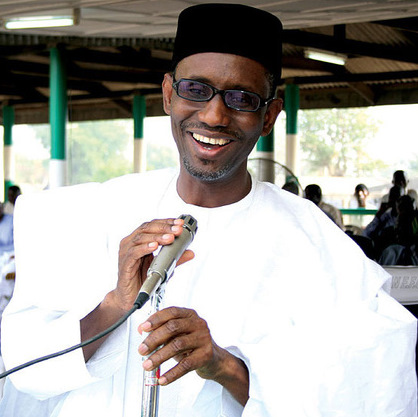Do you know why President Obama may have chosen to visit Ghana ahead of fabulously rich, giant of Africa Nigeria, the reasons may not be too far from what you are about to read below. Courtesy of my favourite Nigerian newspaper, NEXT. Incidentally Mal Nuhu Ribadu has joined the list of Nigerian whom we ought to celebrate on the NIGERIA’S PRIDE page.

Read and ponder. There is really a disease called CORRUPTION, and I know that it is not soley an African infection. The mind revolution has already begun… READ On…. Former Chairman of the Economic and Financial Crimes Commission [EFCC], Nuhu Ribadu, appeared before the United States House of Representatives Committee on Financial Services on Tuesday May 19, lashing at Nigerian leaders who he said have betrayed the promise of independence. “Today, after one civil war, seven military regimes, and three botched attempts at building real democracy, there is one connecting factor in the failure of all attempts to govern Nigeria: corruption” said Mr. Ribadu, now a fellow at St Anthony’s College at the University of Oxford in the United Kingdom. Mr. Ribadu who spoke on the theme of Capital Loss and Corruption: the Example of Nigeria, testified alongside Raymond Baker, the Director of Global Financial Integrity; Monica Macovei, former Minister of Justice, Government of Romania; Jack Blum, former head, UN Experts Group on Asset Recovery; and Anthea Lawson, Lead Investigator-Financial Institutions, Global Witness. Giving reasons why western countries must see corruption as one of Africa’s primary growth hindrance, Mr Ribadu remarked that “The West must understand that corruption is part of the reason that African nations cannot fight diseases properly, cannot feed their populations, cannot educate their children and use their creativity and energy to open the doorway to the future they deserve.” The former anti-graft czar illustrated his presentations with how former Nigerian governors, aided by foreign banks, stashed away billions of naira meant for the growth and development of their people. “Mr. Joshua Dariye, Governor of Plateau state, was found by the London Metropolitan Police to operate 25 bank accounts in London alone to juggle money and evade the law. Domestically, we were able to restrain proceeds of his crimes worth $34 million,” he said. “Mr. D.S.P. Alamieyeseigha, governor of oil rich Bayelsa State. He had four properties in London valued at about £10 million, plus another property in Cape Town valued at $1.2 million. £1 million cash was found in his bedroom at his apartment in London. £2 million was restrained at the Royal Bank of Scotland in London and over $240 million in Nigeria. This is in addition to bank accounts traced to Cyprus, Denmark, USA and the Bahamas,” Mr. Ribadu said. For the West to finally understand the true ramifications of corruption, Mr. Ribadu said it must see it beyond “a system of bribes and patronage, but the systematic undermining of responsible governance, of visionary leadership, of a society’s ability to meet and overcome challenges.” Corruption, he argued, is part of the reason that “African nations cannot fight diseases properly, cannot feed their populations, cannot educate their children and use their creativity and energy to open the doorway to the future they deserve.” The former EFCC boss said the fight against corruption in Nigeria is not in making new laws. “The laws needed to check these problems often already exist; what is lacking is the culture of enforcement” he told the American congressmen and women, adding also that such an enforcement culture will only blossoms where there is “the necessary political will, and this political will must be strong at the very top.” The west has a big role to play in the fight against corruption in Africa, Mr. Ribadu said through helping to promote instruments that can institutionalize tangible anti-corruption regimes. “Similarly, the US could help promote a Proceeds of Crime law that has treaty status, and push the boundaries of the Foreign Corrupt Practices Act (FCPA) to acquire expanded power to bite both givers and takers of bribes” Ribadu said. He also took argument with those who thought the problem of bribery is with the giver, saying “Until those receiving the bribes are punished for their actions, the marketplace for high‐stakes elite bribery will continue to thrive.” Mr. Ribadu then canvassed a strong support for civic organizations who he said are critical in the war against corruption. “I would also propose that Congress support civil society monitoring programmes and direct support for programmes building investigative journalism, which can support transparency and anti‐corruption efforts” to urged the congressional panel….copyright 234NEXT.com
